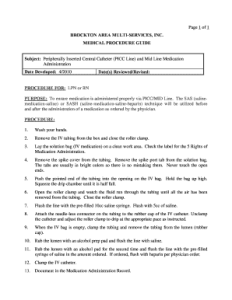
Key Factors to Consider When Choosing a Hospital or Clinic
Introduction
In today’s world, the healthcare industry offers a wide range of options when it comes to hospitals and clinics. However, not all healthcare facilities are created equal. When it comes to choosing a hospital or clinic for your medical needs, there are several key factors that you should consider. These factors play a crucial role in determining the quality of the care you receive and can ultimately impact your overall health outcome. Let’s explore these key factors in detail.
1. Reputation and Credentials
The reputation and credentials of a hospital or clinic are essential. Conduct thorough research to determine if the facility has a good track record in treating specific medical conditions. Look for certifications, accreditations, and awards that indicate their commitment to quality care. Find out if the doctors, surgeons, and staff are highly qualified and experienced in their respective fields. This information can usually be found on the hospital or clinic’s website, or you can consider reading online reviews and ratings from past patients.
2. Services and Specialties
Consider the services and specialties offered by the hospital or clinic. Different healthcare facilities have varying capabilities and expertise. If you have a specific medical condition or require a particular treatment, ensure that the facility has the necessary resources and specialists to address your needs. This is especially important for complex procedures or specialized care, such as oncology, cardiology, neurosurgery, or reproductive medicine.
3. Location and Accessibility
The location and accessibility of a hospital or clinic can greatly impact your convenience and ease of access to medical care. Consider how far the facility is from your home or workplace. Additionally, evaluate the availability of public transportation, parking facilities, and wheelchair accessibility if required. In emergencies, proximity to a hospital with a well-equipped emergency department can prove crucial.
4. Insurance Coverage and Costs
Before choosing a hospital or clinic, verify if they accept your health insurance coverage. Understanding your insurance network can help minimize out-of-pocket expenses and prevent unexpected bills. Inquire about the approximate costs of various procedures, treatments, or surgeries to ensure they align with your budget. Keep in mind that while cost is a factor, quality of care should not be compromised solely for financial reasons.
5. Patient Satisfaction and Reviews
Patient satisfaction can provide valuable insights into the overall experience you can expect at a hospital or clinic. Read patient reviews and testimonials to gauge the quality of care, staff friendliness, wait times, cleanliness, and overall patient experience. Reliable review platforms like Yelp or Google Reviews can be helpful sources for gathering patient feedback and experiences.
6. Healthcare Technology and Facilities
The use of advanced healthcare technology can greatly enhance the accuracy of diagnostics, treatment options, and overall patient care. Consider the hospital or clinic’s investment in state-of-the-art technology and facilities. This includes capabilities such as electronic health records, telemedicine services, advanced imaging technology, and surgical robotics. A facility that embraces technology demonstrates a commitment to providing efficient and effective healthcare services.
Conclusion
Choosing the right hospital or clinic for your medical needs is a decision that should not be taken lightly. By considering factors such as reputation, services, location, insurance coverage, patient satisfaction, and healthcare technology, you can make an informed choice that aligns with your healthcare expectations. Remember, your choice of facility can have a significant impact on your health and well-being, so prioritizing these key factors is crucial.

